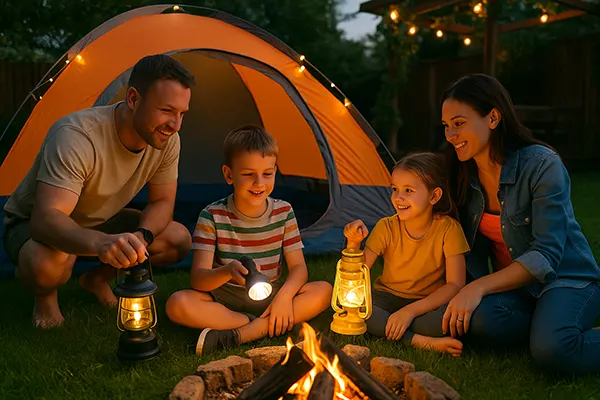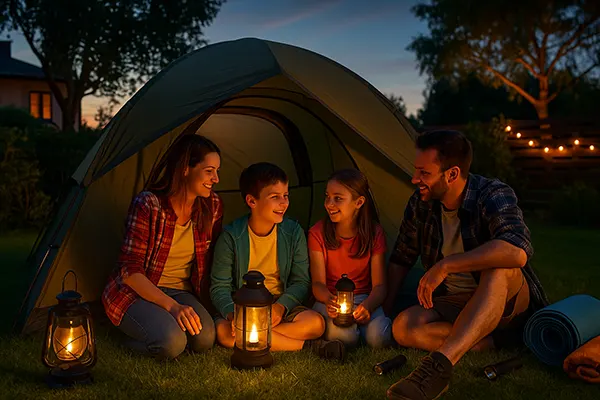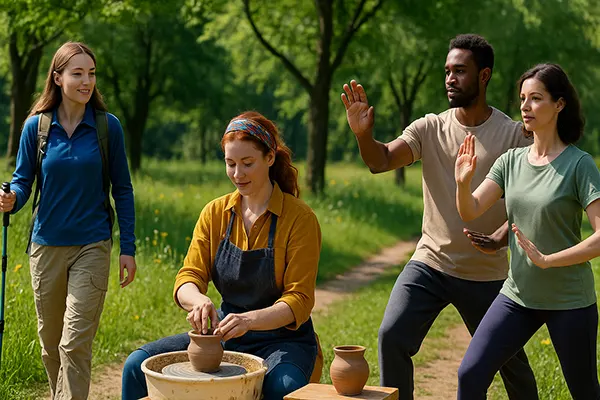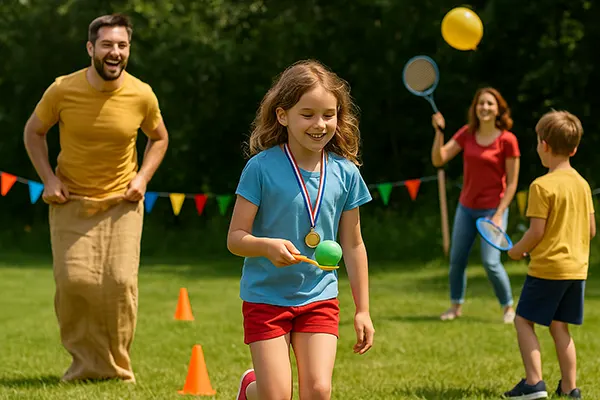Backyard Camping: How to Turn a Night in a Tent into a Family Adventure
Looking for a unique and accessible way to spend quality time with your family? Backyard camping is an excellent idea that combines the thrill of outdoor adventure with the comfort of home. Especially suitable for urban families, this activity is a creative, safe and memorable experience for kids and adults alike. With just a few household items and a bit of imagination, you can recreate the magic of a real camping trip right outside your door.
How to Set Up a Backyard Camp Without Special Equipment
You don’t need fancy gear to make your backyard camping adventure enjoyable. Start with the basics: a family tent, sleeping bags or warm blankets, and something soft to lie on, like yoga mats or inflatable mattresses. If you don’t have a tent, a makeshift shelter using ropes and blankets can serve just as well. Choose a flat, dry area and ensure it’s clean and safe from insects or sharp objects.
Lighting adds to the atmosphere—use LED lanterns, solar-powered garden lights or even string lights. A portable speaker can play nature sounds or calming music, while an old picnic table or crate makes a perfect outdoor table. Make sure you also have torches or headlamps for late-night bathroom trips and storytelling under the stars.
To create a sense of adventure, set up zones: a sleeping area, a kitchen spot for snacks, and a game corner. You can even mark the campsite boundaries with pebbles, branches or craft flags. This kind of organisation makes it feel like a mini camping ground, right in your garden.
Weather, Safety, and Comfort Considerations
Always check the weather forecast before planning your backyard camping night. Avoid windy or rainy evenings and opt for mild, dry nights instead. Pack some insect repellent, especially in summer, and dress in layers to adjust to temperature changes through the night.
Ensure the campsite is safe for children—remove sharp tools, cover water features, and explain the ‘camping rules’ before starting. Having a first aid kit nearby is essential, as is knowing your child’s allergies and how to handle minor injuries or insect bites.
Don’t forget comfort. While part of the charm is ‘roughing it’, cushions, extra blankets and a backup plan for retreating indoors if needed can make the night fun instead of frustrating. Having the house nearby is part of what makes backyard camping great for first-timers.
Thematic Games and Activities for All Ages
Make the evening more interactive with games that match the camping vibe. Classic outdoor games like hide-and-seek, scavenger hunts or flashlight tag are easy winners. For younger kids, plan a ‘camping bingo’ or ‘nature detective’ game where they find leaves, bugs or stars on a checklist.
Storytelling is a timeless camping tradition. Encourage everyone to share a made-up adventure or memory. You can even set up a mini stage with a flashlight and take turns performing skits or jokes. Playing ambient jungle or forest sounds in the background adds to the immersion.
Board games or card games like UNO or Dobble can also be brought outside and played under the lantern light. And for a calm ending, consider a bedtime story or family meditation session, helping the little ones wind down under the night sky.
Campfire-Style Food Without the Fire
Even if open flames aren’t an option in your garden, you can still enjoy camp-style meals. Use a portable gas stove or prepare dishes in advance indoors. Hot dogs, baked potatoes in foil, or grilled cheese sandwiches wrapped in baking paper can be easily warmed up.
For dessert, make s’mores in the oven or microwave and bring them out on a tray. Alternatively, layer crushed biscuits, chocolate spread and marshmallow fluff in jars for a mess-free version. Add a thermos of hot chocolate for the full effect.
Involve kids in meal prep to make it more fun—let them build their own wraps or skewers. Set up a picnic-style buffet where everyone can serve themselves. Eating outdoors always feels more special, especially when it’s part of a ‘camping trip’.

Eco-Friendly Tips for Backyard Adventures
Backyard camping is a great opportunity to teach kids about environmental responsibility. Start with reusables: swap plastic cups and plates for metal or compostable alternatives. Bring out a bin or container for recyclables and show children how to separate waste correctly.
Try preparing meals with minimal packaging, using fresh, local ingredients. Store food in reusable containers and avoid single-use plastic where possible. Don’t forget to compost food scraps if you have the facilities—it’s a simple way to reduce waste.
Before heading back indoors, make cleaning up part of the fun. Play a ‘clean-up game’ to gather all items, trash and decorations. Leave the garden exactly as it was or better. Teaching ‘leave no trace’ ethics from a young age instils respect for nature—even if it’s just your backyard.
Creating a Lasting Family Tradition
Backyard camping doesn’t need to be a one-off event. Consider making it a seasonal tradition—marking the first warm weekend of spring, or the start of school holidays. Give each ‘camp-out’ a different theme: space exploration, jungle safari, or pirate island, for instance.
Let kids take part in planning. Assign roles—camp chef, storyteller, scavenger hunt leader—and allow them to shape the night’s agenda. The more involved they are, the more memories they’ll make and cherish.
Take photos, keep a camping journal, or create a scrapbook together. These mementoes add meaning and continuity to the experience. Over time, backyard camping can become a beloved ritual that brings the family closer in a simple yet powerful way.





